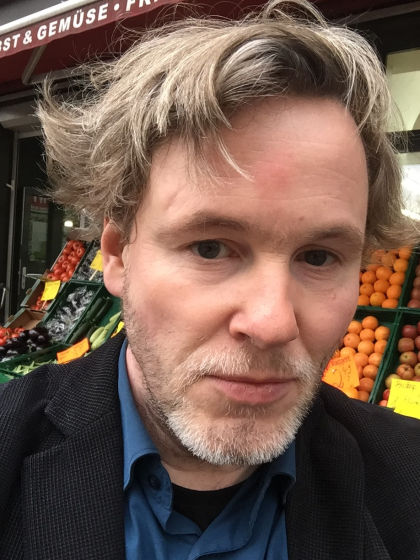M. (Martin) Lenz, Prof

If you have got this far, you might be interested in my current take on academic philosophy.
I generally try to connect research on early modern and medieval philosophy with a view to contemporary themes, thus bringing the history of philosophy to bear on current issues and vice versa. Following on from my focus on relations between language, thought and world, I have developed a particular interest in the sources of normativity in cognition and language: What is it that makes our cognition and speech right or wrong?
Studying this question in the later medieval and early modern period, my historical hypothesis is that the determinants of such norms were increasingly seen as rooted in relations between cognitive agents rather than merely in mind-world relations. Roughly since 2015, I began to pursue a number of studies on Spinoza, Locke and Hume to elaborate and test this hypothesis. In what follows, I give brief descriptions of four projects:
(A) Socialising Minds: Intersubjectivity in Early Modern Philosophy
How do our minds depend on the minds of others? – Early modern philosophers are well known to have developed a number of theories designed to explain how we cognise external objects. What is hardly recognised is that many early modern philosophers also addressed the problem of how our cognition is influenced by other minds. My book provides a reconstruction of three central early modern accounts (by Spinoza, Locke and Hume) of the influence that minds exert on one another. This might sound surprising, since it is especially early modern authors who are taken to endorse an understanding of minds as autonomous and individualistic. Against this common assumption, I defend the claim that at least some early modern philosophers endorsed an intersubjective understanding of the mind.
(B) Teleology and Convention in Later Medieval and Early Modern Philosophy
To what extent do later medieval and early modern explanations of the natural world and cognition rely on (natural) teleology? How are conventions rooted in our biological make-up? Following up on earlier studies on normativity, I developed a growing interest in the history of philosophy of science (especially in psychology). While teleological explanations seem to have been considered problematic already among later medieval Aristotelians (most clearly in Ockham) and prominently expelled by Descartes, they inform a number of concepts (such as knowledge, freedom, secondary qualities) in authors such as Spinoza and Locke.
(C) Intersections of Medicine and Philosophy
Why do we think, feel or interact the way we do? Historians of philosophy often study such questions in relation to metaphysical, physical or psychological theories. Accordingly, human behaviour is taken to have been conceptualised mainly in reference to talk about essential or general physical and psychological dispositions. However, in recent years this picture has undergone crucial changes: lurking in the background of explanatory models are medical assumptions whose exposition often sheds new light on ancient, medieval and modern debates. To what extent, for example, are theories of imagination driven by medical considerations? Should Hume’s account of scepticism be understood in the light of humoral theory? It is precisely the interaction between the two disciplines that I wish to investigate in a series of papers and joint projects. While I currently focus on the medieval roots of discussions in early modern authors (esp. Hume, Berkeley and Malebranche), I am also joining forces with a number of researchers to prepare a joint proposal for large project.
(D) History in Philosophy
What is the relation between philosophy and its history? Does it matter for an idea who thought of it in what context? While some people think that historical context largely determines content of philosophical theories, others view this assumption as a version of the genetic fallacy. The relation of philosophy to the history of philosophy is known to have been quite problematic. While history has often been shunned by analytic philosophers early on, for example, the reasons for doing so are founded on crucial assumptions about the nature of philosophy and of history. This project is intended to show to what extent the practice of philosophy involves doing (at least some) history. It is and will be carried out for diverse audiences: While part is intended as a scholarly endeavour, it is also designed as what is known as ‘outreach’ to a wider audience of students and interested public.
| Last modified: | 24 June 2022 11.54 p.m. |
